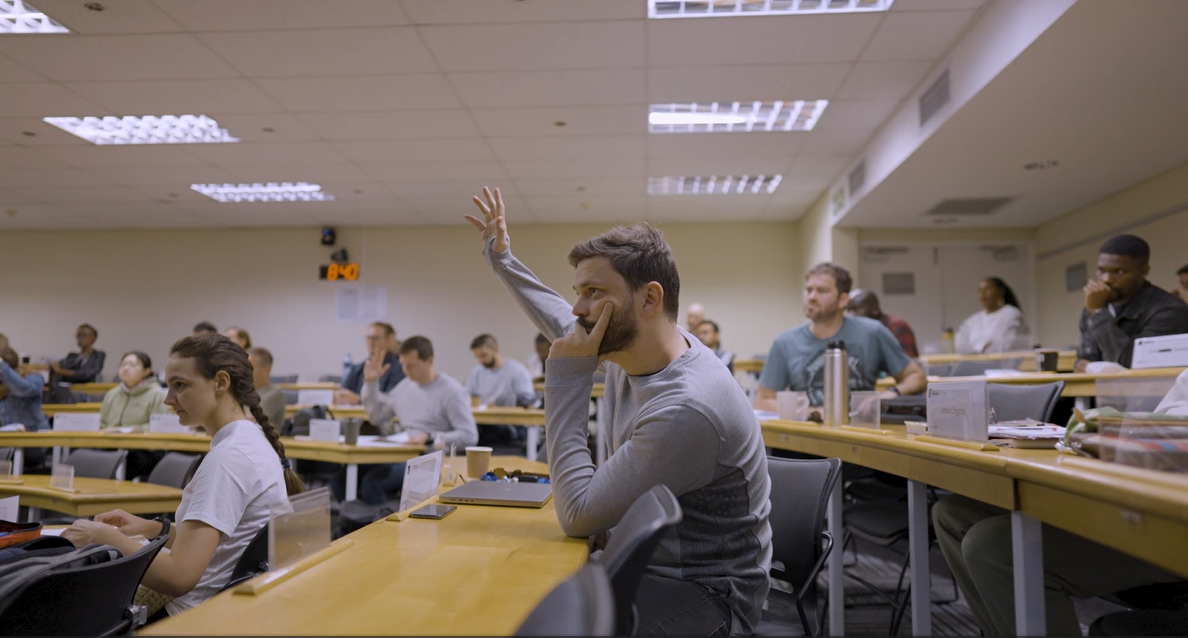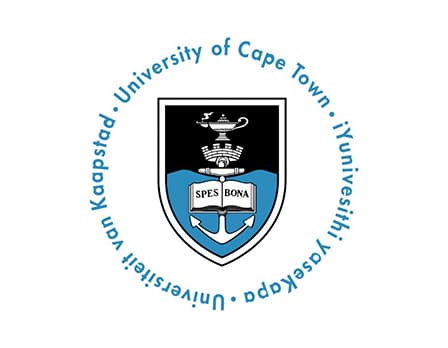Ulrich Brummer’s pursuit of a Master of Management began in a citrus farm in Nqweba, a rural town in South Africa. This was where his parents taught him a rule of customer service: it’s not about the product, but the story behind it. The stories he heard weren’t about the citrus fruit itself, but the legacy of South Africa. Brummer says, “This love for telling stories about South Africa eventually turned into a drive to understand how global systems and business work, and how to navigate them with purpose.”
With an interest in business forged, Brummer found it a no-brainer to seek an education at the UCT Graduate School of Business, the #1 business school in South Africa. He chose to pursue the CEMS Master of Management (MIM) programme in particular, as its global community struck the right chord with the boy who grew up on a farm in the middle of nowhere.
“The prospect of studying across continents, learning from diverse cultures, and collaborating with future change makers felt like more than a degree,” he says. “It felt like a calling.”
Through the CEMS MiM programme, Brummer gets double the degree and double the university experience. UCT GSB is one of 33 top business schools in the CEMS Network — a global alliance in management education. That means you’ll earn not one, but two qualifications — one issued by your home university and the other by CEMS. You’ll start at your home university and then spend a study term abroad in one of these 33 schools, a global experience that guarantees a high return on investment.

Brummer’s top three skills that he developed in the CEMS MIM programme were adaptability, resilience, and cross-cultural communication. Source: UCT Graduate School of Business
Introducing: the CEMS Master of Management
Amidst an ever-changing world, Africa is booming with business potential. The school calls it the “25 in 25” phenomenon, where 25% of the global population under 25 will be in Africa by 2050. It positions the university as an unparalleled expert in emerging markets – especially one as fast-growing as this.
“I’ve always believed that to understand business in its most raw and complex form, you have to immerse yourself in an emerging market like ours, where volatility, ingenuity, and opportunity all coexist on a daily basis,” says Brummer.
When Brummer encountered the CEMS MIM programme at UCT GSB, its specialisation in international management and the ability to engage with a global network appealed to him. The programme is a gateway into the world’s most prestigious business schools, with names like the London School of Economics, the National University of Singapore, and Copenhagen Business School all part of the CEMS network. It takes 12 to 18 months to complete, with courses that mix theory and practical learning.
The journey spans three semesters – the first term on campus, the second term abroad, and the third on an international internship. The curriculum comprises five core courses and an array of electives to customise your learning. Amongst those, it was the Business Development and Doing Business in Africa seminar that left the most impact on Brummer. It let him view Africa through a new lens – one that highlighted both its challenges and the sheer amount of untapped opportunity.
“The faculty played a huge role in that,” says Brummer. “Professor David Venter, in particular, stood out with his deep expertise in negotiations, real-world insights, and stories that were equal parts tactical and unforgettable.”
Absorb the world through study abroad

Cape Town was voted the best city in the world by Time Out in 2025. Source: UCT Graduate School of Business
The UCT GSB is home to 32 full-time faculty members who serve as award-winning research experts, and even more visiting professors active in the industry. Through the CEMS network, your access to such expertise expands across the 33 leading business schools.
On his semester abroad, Brummer decided to attend the ESADE Business School in Barcelona, Spain.
“Studying in this international setting was a real crash course in cross-cultural collaboration, where you’re working on student consulting projects, group work, and others with students from completely different backgrounds,” he says. “And you had to align ideas, expectations, and deliverables.”
While it was tough to navigate, studying abroad gave Brummer the tools to navigate the cultural nuances of his work today.
But getting a global experience doesn’t end with just exchange stints. As part of the CEMS MIM’s core curriculum, students are required to build their understanding of the real world through an international internship. It’s the launchpad to a career that surpasses borders, not only in terms of skills but also through building relations with UCT GSB alumni and colleagues around the world. From Google to Bosch to Beiersdorf to Deloitte – there’s no limit to the places where graduates are achieving their goals, with 71 corporate partnerships within access.
Paying homage to his roots, Brummer completed his internship at Origin Fruit Group. He may have grown up on a citrus fruits farm, but the internship would show how little he knew of the industry.
“What it taught me – and this stuck – is that no matter how much theory you absorb, entering a real business means starting fresh, being open,” he says. “The only part that clicked into place right away was how cultural perspectives can dramatically shape how people see both problems and opportunities.”
The impact of the internship took Brummer by surprise – he was originally headed for finance, but unearthed a passion for the fruit industry. After completing the CEMS MIM programme, the company offered him a full-time role. Today, he’s based in the Origin Fruit Group’s office in Rotterdam, Netherlands, as one out of 92% of CEMS alumni making their mark in global careers.
If you’d like to do the same, check out the CEMS Master of Management programme at the University of Cape Town Graduate School of Business today.
Follow UCT GSB on Facebook, X, Instagram, LinkedIn, and YouTube.













